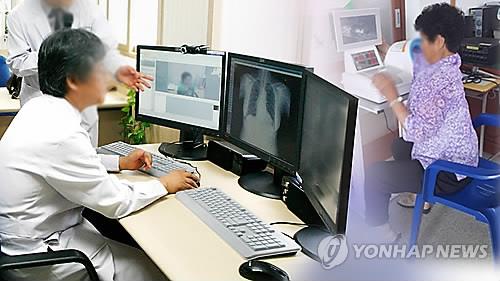S. Korean hospitals, firms eye global market with telemedicine
2016/08/01 11:36
SEOUL, Aug. 1 (Yonhap) -- South Korea's big hospitals and medical equipment firms have made inroads into Asian and Latin American markets with their telemedicine services, hoping to create new revenue flows in the global market.
Telemedicine allows doctors to offer quality health care to those in hard-to-reach areas and for the elderly by connecting patients to doctors using the internet.
In April 2015, Gachon University Gil Hospital signed a memorandum of understanding with Peru's Cayetano Heredia Hospital to cooperate on telemedicine services in the Latin American country.
Seoul St. Mary's Hospital and a hospital in Shanghai agreed in September last year to jointly develop a telemedicine service. Two months later, Yonsei University of Health System and University of the Philippines System agreed on a similar service.
Recently, officials at Korea University Anam Hospital visited Colombia, Bolivia and Paraguay, during which they discussed plans to provide telemedicine services in the Latin American nations.

South Korea's Ministry of Health and Welfare is also preparing for a package of measures to support the moves by hospitals to provide telemedicine services in overseas markets.
"The number of patients with chronic diseases such as high blood pressure or diabetes is growing and telemedicine can treat such patients anytime and anywhere," a ministry official said.
In line with the moves by the government and hospitals, medical equipment firms are stepping up their efforts to sell telemedicine-related devices in overseas markets.
BIT Computer, which sells hospital, clinic and pharmacy solutions, recently won an order worth 2 billion won (US$1.79 million) to build a telemedicine system at a state-run hospital in Mongolia.
Currently, BIT Computer supplies telemedicine solutions to 11 nations, including Thailand, Iraq and Cambodia.
Another medical equipment maker i-SENS is set to supply blood glucose monitors to China.
In South Korea, a nationwide telemedicine service is not available because of strong opposition from doctors, who claim that such services may lead to misdiagnoses and data theft.
Last year, South Korea launched a telemedicine pilot program for people on five remote islands, prison inmates, sailors of deep-sea fishing vessels and soldiers near the border with North Korea to check the feasibility of the system, according to the health ministry.
(END)